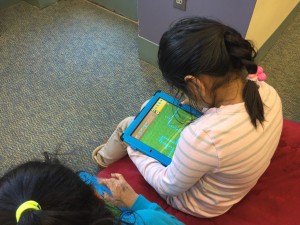In 2016, the Department of Elementary and Secondary Education released the Digital Literacy and Computer Science Curriculum Framework. This document defines what students should know and be able to do in order to effectively use and create technology. The standards are grouped into four strands:
Computing and Society: Students demonstrate responsible use of technology and an understanding of ethics and issues in using digital media at home, in school, and in society.
Digital Tools and Collaboration: Students use digital tools to conduct research, communicate, collaborate, and create artifacts.
Computing Systems: Students identify and operate a variety of different computing devices (e.g. a robot).
Computational Thinking: Students create simple algorithms and programs to demonstrate thinking in new ways.
Throughout the year, the instructional technology specialist and librarian work together to address the strands outlined above. This includes a focus on digital citizenship, research, coding, and the makerspace concept. The instructional technology specialist collaborates with classroom teachers to integrate the framework into the subject matter that is taught in the classrooms.
For more information, including specific skills that are addressed in grades K-2 and 3-5, please visit the department’s website to download the document: http://www.doe.mass.edu/frameworks/dlcs.pdf
